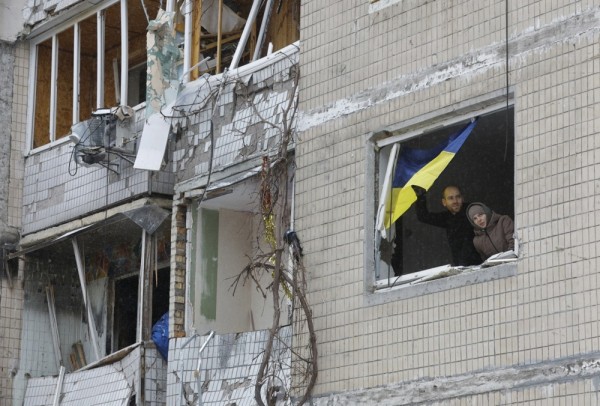The International Press Institute (IPI) and its affiliate, the South East Europe Media Organisation (SEEMO), have joined international freedom of expression groups in criticising the European Union’s silence on Greek prosecutors’ decision to appeal the acquittal of a journalist who published a list of names of some 2,000 Greeks who allegedly hold bank accounts in Switzerland.
The groups – in an open letter sent Friday to European Council President Herman Van Rompuy, European Commission President José Manuel Barroso, European Commission Vice-President Neelie Kroes and Greek Prime Minister Antonis Samaras – said that they were disappointed by the EU’s failure to speak out on the case against Kostas Vaxevanis.
They noted: “The Union can only credibly defend freedoms abroad if it does so in its own member states.”
The full text of the letter appears below.
Letter on the renewed attempts to imprison Greek journalist Kostas Vaxevanis
To:
-Herman Van Rompuy, President of the European Council
-José Manuel Barroso, President of the European Commission
-Neelie Kroes, Vice-President of the European Commission
-Antonis Samaras, Prime Minister of the Hellenic Republic
IFEX signatories are deeply concerned and appalled at the renewed attempts to prosecute Greek editor Kostas Vaxevanis and the wider chilling effects of this effort to silence a journalist acting in the public interest, and one who has already been found to have committed no offence.
The European Union has in the past rightly been quick to denounce threats to media freedom in neighbourhood countries and candidate states that seek membership. So the Union’s failure to speak out on the attempts to silence Vaxevanis is worrying.
Vaxevanis was arrested last month and then acquitted of breaking data privacy laws on 1 November by publishing a leaked list (nicknamed the “Lagarde list”) of over 2,000 names of Greeks allegedly holding bank accounts in Switzerland. He now faces a re-trial at the behest of Greek prosecutors.
Under the Lisbon Treaty, compliance with the EU Charter of Fundamental Rights is legally binding on EU member states. While the Charter protects the rights to privacy and protection of personal data, those rights must be reconciled with the right “to receive and impart information and ideas without interference by public authority and regardless of frontiers,” and the obligation that “the freedom and pluralism of the media shall be respected”, particularly in cases such as this where dissemination of the information at issue is within the public’s general interest. EU member states and the EU are also signed up to the European Convention on Human Rights, which protects human rights and fundamental freedoms.
The EU’s failure to speak out in this case is disappointing. The Union can only credibly defend freedoms abroad if it does so in its own member states.
Further to the letter sent to the Union by Index and nine other freedom of expression defenders regarding Vaxevanis’ case on 5 November, we call on the EU to defend free speech and to condemn this unwarranted harassment and prosecution.
Respectfully yours,
Association of Independent Electronic Media, Serbia
Index on Censorship, United Kingdom
Institute for Reporters’ Freedom and Safety, Azerbaijan
International Press Institute, Austria
Palestinian Center for Development and Media Freedoms, Palestine
Reporters Without Borders, France
WAN-IFRA, Germany
World Press Freedom Committee, France


